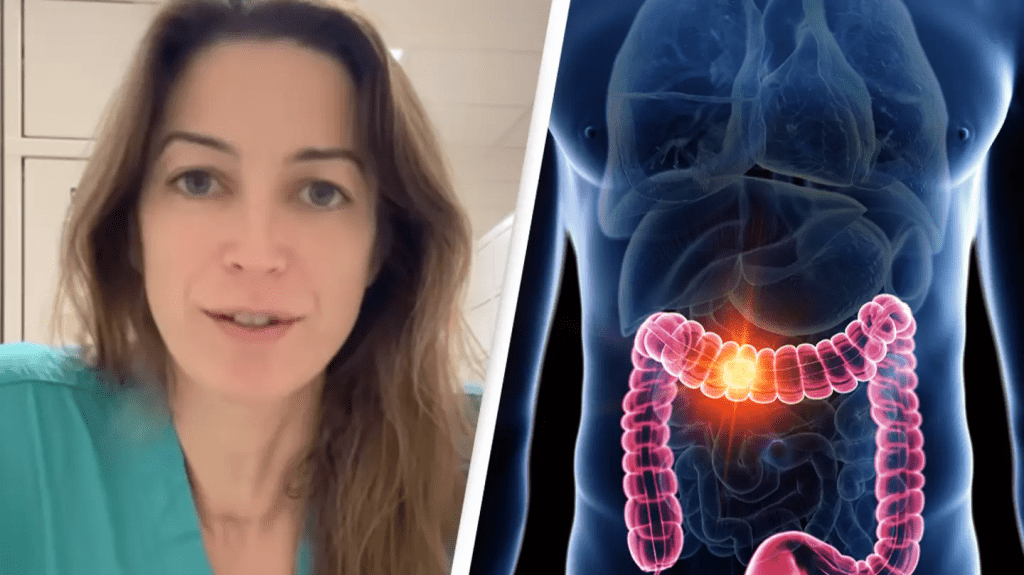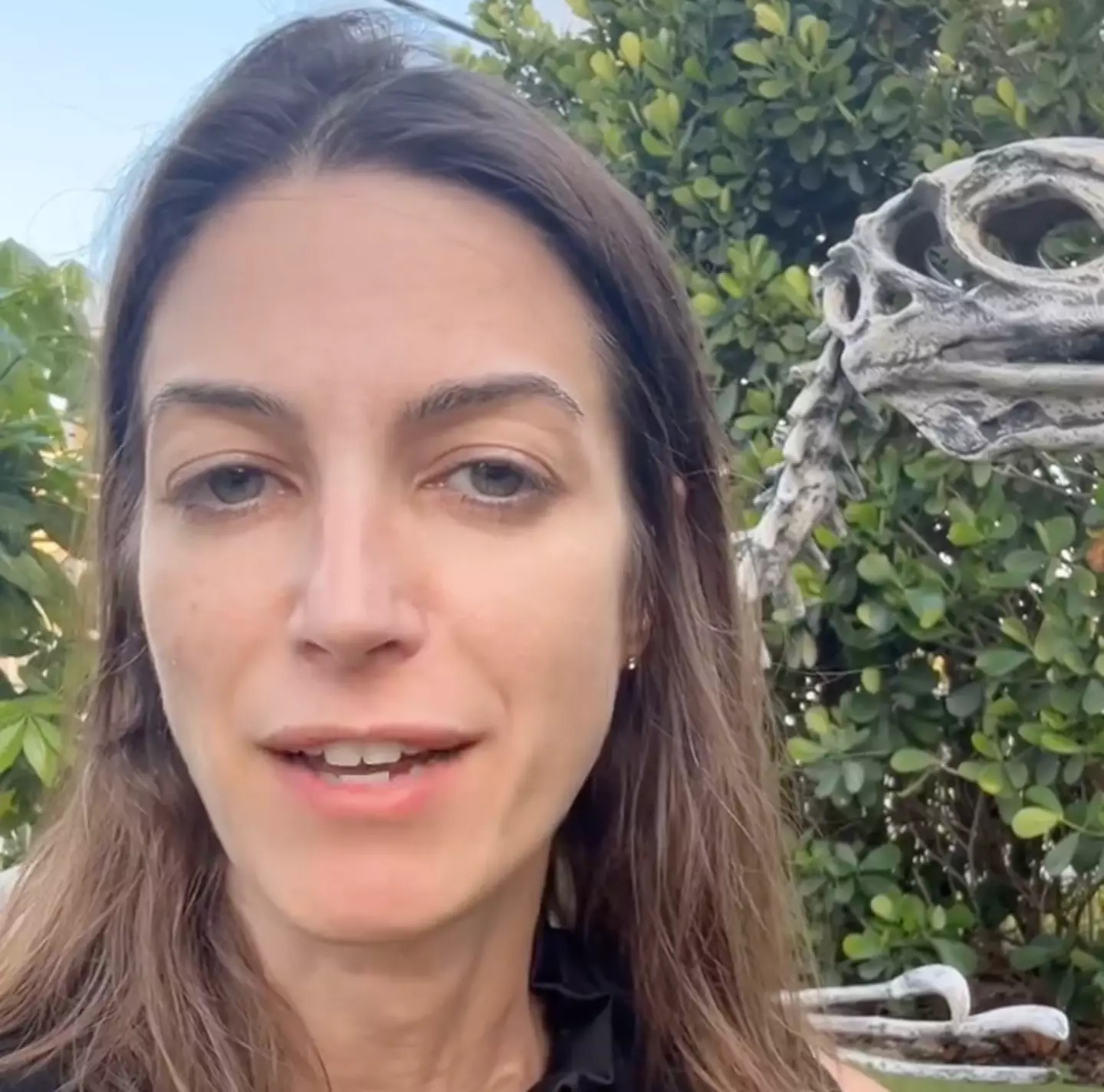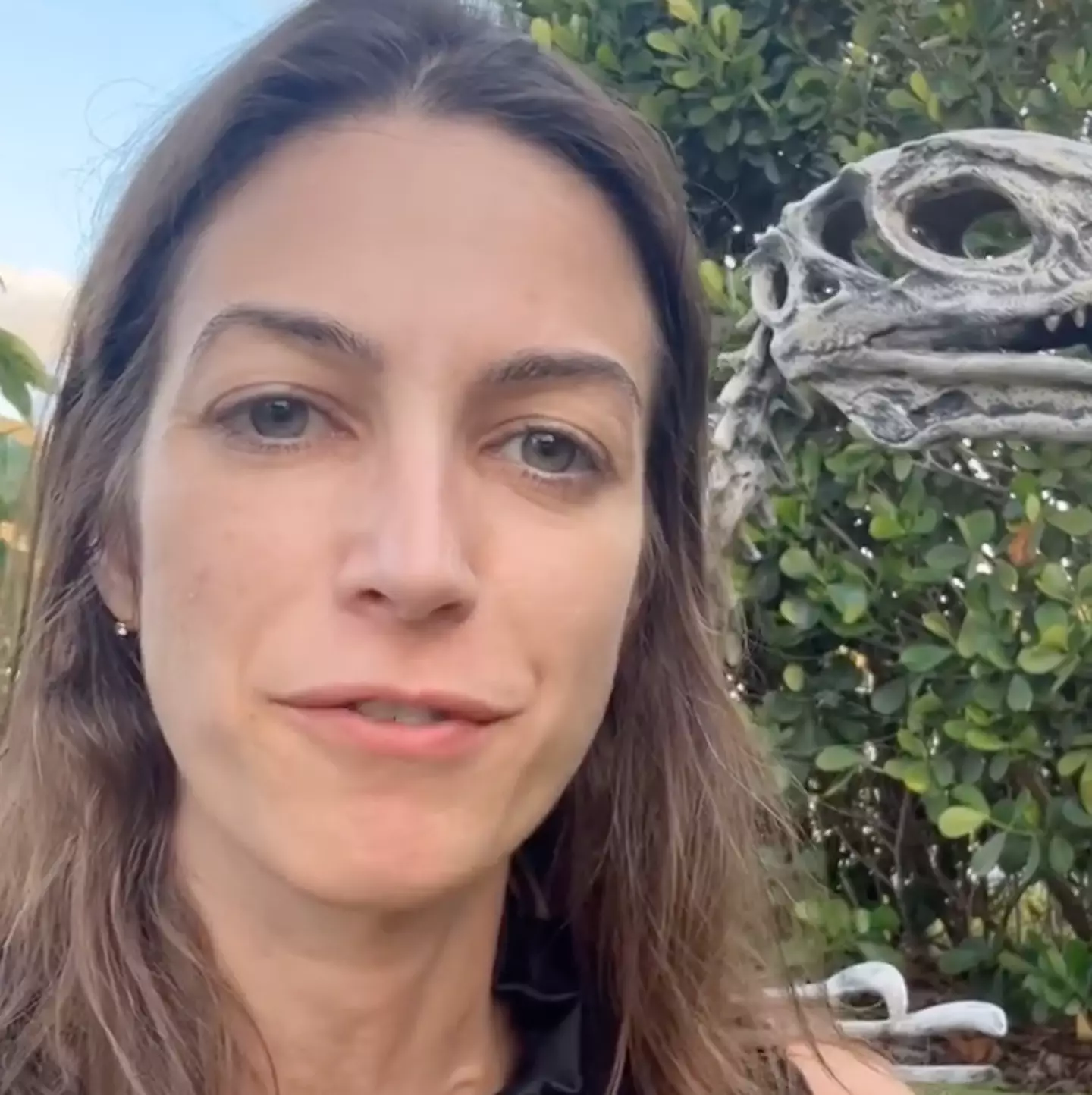When Dr. Lauren Juyia, a 37-year-old gynecologist from Florida, was diagnosed with stage 4 colon cancer, she faced a life-changing revelation. Now in remission, she’s using her experience to raise awareness about two symptoms that led her to seek medical attention—symptoms that might otherwise be easy to dismiss. Her story is a stark reminder that cancer doesn’t always follow the textbook signs and that knowing your body and paying attention to subtle changes can make all the difference. Here’s her story and the symptoms you should never ignore.

The Unexpected Journey to Diagnosis
In August 2022, Dr. Juyia started noticing a couple of unusual sensations in her body. These weren’t classic red flags for colon cancer like abdominal pain, blood in the stool, or sudden weight loss. Instead, she felt something more subtle—a “pelvic heaviness” that transformed into what she described as a noticeable “pelvic mass.” As a doctor, Juyia recognized this was something to check out and went in for an ultrasound.
The results were alarming. The ultrasound revealed large masses on her ovary, which grew from eight centimeters to 24 centimeters within two weeks—an unusually rapid expansion. “I had never seen anything benign grow that fast before,” Dr. Juyia shared. Initially, doctors suspected ovarian cancer, but as further testing and surgery were performed, her diagnosis shifted to stage 4 colon cancer, which had spread throughout her abdomen.
Symptom #1: Pelvic Heaviness and Mass
One of the first and most noticeable signs for Dr. Juyia was a feeling of pelvic heaviness. While pelvic discomfort or pressure can be attributed to a range of benign conditions, it was the persistence and growth of this sensation that prompted her to act. She described feeling as if she had a mass the size of a 16-week pregnancy in her abdomen, which turned out to be her enlarged ovary.
Dr. Juyia’s training in obstetrics helped her recognize that this heaviness wasn’t typical, especially when it began to grow noticeably within days. She urges others to take any feeling of abdominal or pelvic heaviness seriously, particularly if it’s persistent. For younger people, who might typically associate pelvic heaviness with reproductive issues rather than cancer, this awareness is critical.
Symptom #2: Unusual Fatigue
Looking back, Dr. Juyia recalls experiencing a bit of fatigue in the weeks leading up to her diagnosis. Initially, she brushed it off as exhaustion from her busy schedule as a doctor and a mother of two young children. It’s a feeling many people experience and ignore, especially those with busy lives. But for Dr. Juyia, this fatigue turned out to be an early sign that something wasn’t right.
She recalls needing an extra cup of tea in the afternoons, a change that didn’t feel significant at the time. In retrospect, this fatigue was likely due to the cancerous tumors using up her energy reserves. Younger people, she notes, often overlook fatigue, assuming it’s just part of life. But if you’re experiencing unusual, persistent fatigue that doesn’t improve with rest, it’s worth getting checked out.

Lauren was 37 when she was diagnosed (Instagram/@thebenigngyn)
Why Early Detection Matters, Even for Younger People
Colon cancer is commonly associated with older adults, which is why routine screenings for this cancer typically begin at age 45. However, Dr. Juyia’s experience highlights an important message: younger people can be affected too, even if they don’t present with typical symptoms. According to Dr. Juyia, younger bodies are often more resilient and can adapt to symptoms for longer, which means warning signs might not be as intense or noticeable.
She urges anyone under the screening age to pay close attention to their body. “We’re not eligible for screening usually,” she explained, “and we might not have any symptoms because we are young. Our bodies are more resilient, but we should still be attentive to unusual symptoms.”
Understanding Colon Cancer: Symptoms and Risks
Colon cancer is often slow-growing but can be aggressive in advanced stages. Typical symptoms include:
- Changes in bowel habits
- Blood in the stool
- Abdominal pain or cramps
- Unexplained weight loss

Lauren first noticed a mass in her pelvis (Instagram/@thebenigngyn)
However, Dr. Juyia’s case demonstrates that not every colon cancer patient experiences these common signs. Some symptoms, like pelvic heaviness or mild fatigue, might not seem like signs of a serious issue but can still indicate something deeper. Awareness of even subtle changes can lead to early diagnosis and more effective treatment options.
Dr. Juyia’s Road to Recovery: Surgery and Chemotherapy
Following her diagnosis, Dr. Juyia began intensive treatment to fight her stage 4 colon cancer. She underwent multiple rounds of chemotherapy, all while continuing to work as a physician, which she found to be a helpful distraction. In March 2023, she had another surgery that finally brought some good news—she was declared “no evidence of disease,” meaning the cancer was no longer detectable in her body.
Since then, Dr. Juyia has shared her journey online to raise awareness and provide support to others facing similar challenges. Her experience underscores the importance of being proactive, trusting your intuition, and pushing for answers when something feels wrong.
A Call for Early Screening and Vigilance
Dr. Juyia is now a vocal advocate for earlier screening and self-awareness, especially for younger individuals. She believes her experience is a reminder that cancer can strike at any age and that early detection is crucial. “People that are younger than the screening age (45) should still be paying attention to our symptoms,” she emphasized. Her story serves as a call to action for everyone, regardless of age, to listen to their body and seek medical advice when something feels off.
Two Critical Lessons from Dr. Juyia’s Story
Dr. Juyia’s journey offers two key takeaways for anyone looking to stay vigilant about their health:
- Don’t Dismiss Unusual Symptoms: Even if symptoms seem minor or unrelated, like mild fatigue or pelvic heaviness, they might be signals that your body is trying to send you. Trust your instincts and don’t hesitate to consult a healthcare professional if something feels wrong.
- Advocate for Your Health: Dr. Juyia’s experience shows that taking your health into your own hands can make all the difference. If she hadn’t acted on her instincts and sought medical help, her diagnosis might have come too late. Advocacy means pushing for answers, asking questions, and sometimes seeking a second opinion.
Conclusion: Stay Alert and Proactive About Your Health
Dr. Lauren Juyia’s battle with stage 4 colon cancer is a powerful reminder that cancer symptoms don’t always fit a predictable pattern. Her journey illustrates the importance of listening to your body, recognizing even subtle symptoms, and being proactive about your health. If something doesn’t feel right, take it seriously—no matter your age.
By sharing her story, Dr. Juyia hopes to inspire others to stay vigilant and to understand that early detection could be lifesaving. In a world where health is often taken for granted, her experience serves as a crucial reminder to prioritize and protect our well-being.


